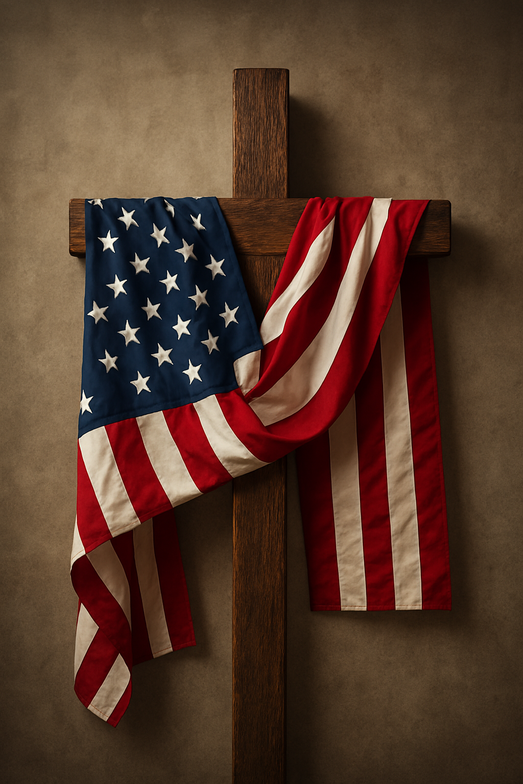
In my sermon last Sunday I named three “pernicious elements” in our national culture: patriarchy, white privilege, and Christian nationalism. I mentioned the last two in passing, merely saying that they normalize “a worldview that opens the door to oppression.” I want to talk a little bit more today about why I think this is true of Christian nationalism.
At first blush, you might wonder why Christian nationalism is bad. After all, it may be argued, the two words, taken separately, describe good or desirable things. We are Christians, so that’s a good thing, and nationalism simply means love of country, right? Why when we put them together do they become a problem?
It’s because Christian nationalism operates on the idea that the United States is an inherently Christian nation and has been so since its founding. As such, Christians ought to have a privileged place in our society, and Christian ideas ought to prevail in the public square. There are several problems with this.
First, not everyone is a Christian in our country. We have millions of Jews, Muslims, Sikhs, Hindus, Buddhists, and Atheists who would reasonably object if they were forced to follow laws and norms designed to privilege Christian ideas and practices. They would become marginalized, and it’s a short step from marginalization to outright oppression.
Second, since the founding of the church two millennia ago, the church has found it difficult if not impossible to speak with one voice on topics of concern. Even the first-century church had its disputes and disagreements—we see evidence for this right there in the New Testament itself—so why should we think that we will be able to do better in our day? The proliferation of denominations and other expressions of the faith make it even less likely that we will come to agreement about what constitutes “true” Christianity. What almost always happens is that the side with the most power gets to set the rules and determine the norms. It happened in the early centuries of the church, when the "orthodox" faction came to ascendancy and did their level best to eliminate “gnostic” expressions of the faith. And it has happened many times since.
Third, Christian nationalism distorts Christianity by getting it all wrapped up in the American mythos. Have you ever seen an image of a cross draped in an American flag? That’s the image I see in my mind when Christian nationalists start talking. They worship a God of military power and a Christ who looks more like Rambo toting an automatic weapon than the Prince of Peace carrying a cross. Whenever you start wedding the Christian faith to the history and mythology of any particular national state, you have entered the danger zone. One of the first things the Nazi party did when they took the reins of government in Germany was to set up their swastika-emblazoned flag in church sanctuaries. We know from history that that first step led nowhere good.
I bring all this up today because in Adult Studies last Sunday we decided to pause our study of the Minor Prophets at the end of this year and take up a discussion of Amanda Tyler’s book How to End Christian Nationalism come January. It’s a very enlightening book that also offers practical ways to combat the creeping scourge of Christian nationalism whenever and wherever we see it. I hope you will consider getting a copy of the book (most online book retailers have it in stock) and joining us each Sunday at 9:00 am in the library for an exploration of Tyler’s ideas and a lively discussion of what we can do to help end Christian nationalism.

